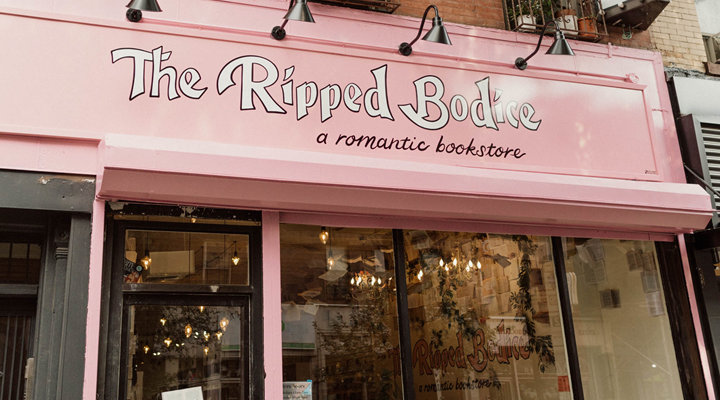In an age when consumers are becoming more and more immersed in the world of social media and video content, the humble book shouldn’t really stand a chance. So, it’s surprising to learn that the market for books, and bricks-and-mortar bookstores, is actually growing. According to industry analytics research firm Statista, the books market in the United States is expected to grow at a compound annual growth rate of 2.33 per cent from 2023 to 2027, marking a notable jump in projected revenue
ue from US$19.31 billion in 2023 to US$21.17 billion by 2027. The publishing industry noticed a significant increase in attention and sales in the past few years, especially as a result of the Covid pandemic.
As confirmed by WordsRated, an international research data and analytics group, 750.9 million print books were sold in the US alone in 2020, marking an 8.24 per cent increase from the year before.
While a variety of retail businesses struggled to adjust to the Covid and post-Covid environment, the book selling industry, and especially independent bookstores, were somehow able to flourish.
The return of independent bookstores
As of 2023, the American Book Association (ABA) has announced a total 2,185 bookstore businesses, 2,599 locations, and over 300 more members than it had in 2019, reaching its highest membership levels in over 20 years.
Not only are independent bookstores becoming a regular neighbourhood fixture again, they are thriving in online sales as well.
According to a financial report conducted by the ABA in 2021, independent bookstores found that 29.6 per cent of reporting stores’ sales revenue came from online sales. To give some perspective on how significant a proportion this is, in just 2018, only 1.3 per cent of sales revenue derived from online sales. These figures are especially significant considering Amazon’s dominance in the online book market.
As reported by IndieCommerce, an e-commerce platform for independent bookstores run by the American Booksellers Association (ABA), since 2020, independently-run bookstores have seen a 580 per cent increase in sales with over US$200 million in online revenue.
In 2022, IndieCommerce websites had over US$42 million total in online sales, marking a giant spike from just US$12 million in 2019.
What’s driving this resurgence?
There are a few factors that have played into the return of the independent bookseller, the most significant of which is arguably #booktok.
Since launching in the US in 2017, TikTok has evolved from a place where people share dance memes and funny videos into a social commerce platform with an enormous power to market and sell products.
While it may seem obvious that coloured cosmetics and other products that benefit from visual demonstration would thrive on the video-centred platform, one of the most noteworthy sectors of retail to be affected by TikTok is the publishing industry.
From excited readers posting reviews of highly-rated or controversial books to virtual discussions centred on popular or despised characters, the influence the viral hashtag #booktok has amassed is not to be underestimated.
As of September, the hashtag has garnered over 175 billion global views. According to TikTok, total views of #booktok have increased by more than 140 per cent over the past year.
The impact of this can be seen in offline retail too, with bookstore chains like Barnes & Noble and independent bookstores like The Ripped Bodice dedicating tables and shelves to #booktok picks, novels, especially of the romance and fantasy variety, that are widely discussed on TikTok.
A report produced by Circana BookScan recently revealed that adult fiction, a sales segment widely discussed via #booktok, has been one of the publishing industry’s steadiest-selling categories in the past few years. Unit sales of print adult fiction books were up by 8.5 per cent in 2022 over 2021, making it the only category to post an increase in that year. And in the first six months of 2023, adult fiction was the only category to show focused growth, with sales up by 4.2 per cent.
Leah Koch, co-founder and co-owner of the inclusive romance-focused bookstore The Ripped Bodice, told Inside Retail that “it was a perfect storm of the success of TikTok and people having so much more time on their hands and craving connection that led to an explosion of people, especially a younger generation, rediscovering reading for pleasure and creating online community.”
As opposed to more traditional avenues for book marketing, a large amount of #booktok and digital book content revolves around books that feature a focus on underrepresented communities such as BIPOC and LGBTQIA+.
Independently run bookstores like Yu and Me Books, which focuses on shelving a wide range of authors especially those in the Asian American Pacific Islander community, appeal to readers seeking out stories they had limited or no access to growing up.
While The Shop Around The Corner couldn’t compete with large-scale book retailers in the iconic film You’ve Got Mail back in 1998, it would have stood a much better chance in today’s thriving independent bookstore market.

